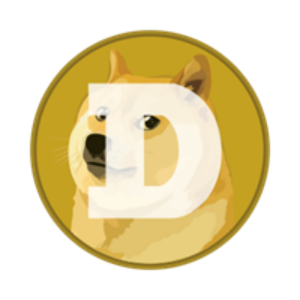 Dogecoin
Dogecoin
What is Dogecoin (DOGE)?
Dogecoin (DOGE) is an open-source, peer-to-peer cryptocurrency launched in December 2013 by software engineers Billy Markus and Jackson Palmer. It was originally created as a joke, using the Shiba Inu "Doge" meme as its logo. The meme itself is based on a 2010 photograph of a Shiba Inu named Kabosu, adopted from an animal shelter by Japanese kindergarten teacher Atsuko Satō in 2008. Despite its humorous origins, Dogecoin rapidly gained traction as a digital currency. It runs on a decentralised blockchain system, using Proof-of-Work (PoW) for transaction validation and the Scrypt algorithm for mining, which is less energy-intensive than Bitcoin’s SHA-256.
What is Dogecoin (DOGE) used for?
Dogecoin’s primary use is as a digital currency for peer-to-peer transactions. Its low fees and fast confirmation times make it ideal for tipping on social media platforms like Reddit and Twitter. It has also been used for donations and charitable fundraising efforts, such as sending the Jamaican bobsled team to the 2014 Winter Olympics and raising funds for clean water projects in Kenya. Dogecoin can be used to purchase goods and services from merchants that accept it and can be exchanged through cryptocurrency platforms. Most recently, the Dogecoin Foundation partnered with YouTubers Mr Beast and Mark Rober for the TeamSeas initiative to remove 30 million pounds of trash from the world’s oceans.
Who created Dogecoin (DOGE)?
Dogecoin was created by Billy Markus, a software engineer at IBM, and Jackson Palmer, a product manager at Adobe. The cryptocurrency was launched in December 2013 as a satirical response to the hype surrounding cryptocurrencies like Bitcoin. Palmer managed the public-facing aspects, while Markus developed the first iterations of Dogecoin’s code, which was based on Litecoin. In 2014, both Markus and Palmer stepped away from the project. Development has since been maintained by a core team of developers, known as the Dogecoin Core Development team, supported by over 40 contributors throughout the years.
Dogecoin's Community and Ecosystem
Dogecoin's community is a major factor in its continued success. Known for its humour and generosity, the Dogecoin community has supported various charitable initiatives and promotes Dogecoin as an alternative to traditional currencies. The community-driven ethos is captured by the slogan "Do Only Good Everyday" (DOGE). Over time, Dogecoin has gained support from high-profile figures like Elon Musk, leading to increased visibility and usage. Dogecoin also benefits from partnerships with payment platforms that enable its use in retail and online purchases, contributing to its expanding ecosystem.
How Does Dogecoin Work?
Dogecoin operates on a decentralised blockchain, similar to Bitcoin and Litecoin, but uses the Scrypt algorithm in its Proof-of-Work (PoW) consensus mechanism. This allows for faster block creation—one block is mined every minute—resulting in quicker transaction confirmation. Dogecoin has no maximum supply, with 10,000 DOGE generated per block, which encourages spending rather than holding. Mining is also possible through merged mining with Litecoin, allowing miners to secure both networks simultaneously without additional computational work.
Dogecoin Development and Governance
Since the departure of its founders in 2014, Dogecoin has been maintained by a team of core developers. The Dogecoin Foundation, a non-profit organisation, also supports the development of the project by advocating for its use and ensuring trademark protection. As an open-source project, anyone can contribute to Dogecoin’s development. The Foundation’s governance has focused on maintaining Dogecoin’s stability while expanding its utility. Recent initiatives, like the partnership with TeamSeas, highlight the continued community-driven development of Dogecoin.